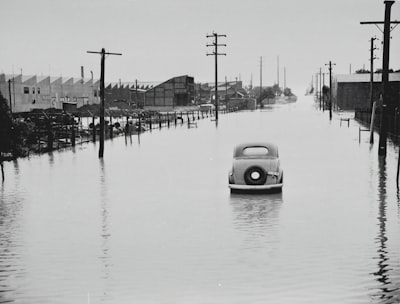Consider Your Medical Needs When Making a Flood Plan
If a damaging incident, like a flood, threatens your property, you might put yourself in harm’s way if you don’t see to your personal needs. Older people are among the most at-risk individuals when it comes to flooding. It might be harder to evacuate and keep yourself safe during these threatening times. What can you do to get ready for such events? 
You never want to see a flood threaten your property. However, if it does, you’ll want to have a safety plan in place. That way, you can get help when you need it. Keep reading to understand your flood risk and learn what you can do to protect yourself when floods occur.
Understanding Your Flooding Risk
A flood can happen in any home, at any time. It might occur from river swells, heavy downpours and even ground saturation. However, some homes—usually those in low-lying or flat areas—have a higher flood damage risk than others. They might lie within designated flood zones set by your community.
You will likely know if your home sits in a high- or moderate-risk flood zone because you will have a requirement to carry flood insurance. Policies come backed by the National Flood Insurance Program (NFIP). They usually are not available in your standard homeowners insurance.
Protecting Yourself When Floods Threaten
Flood insurance might help you cover the costs of cleaning up flood damage. Additionally, it’s important to have a plan in place to protect yourself from flooding. Consider these measures:
- Even if your home has never flooded before, that doesn’t mean it won’t. Plan to evacuate ahead of the flood, as necessary. You might be able to go to a family member’s or friend’s home, or to a designated flood shelter.
- Flooding might not enter the home. However, it could make the home inaccessible from the road. Don’t get caught inside. Call emergency services if you have any fear of becoming trapped in the home due to flooding.
- Make sure you have critical essentials with you, whether you stay or evacuate. Necessities might include a first-aid kit, prescription medications and any other important medical items.
- Keep food on hand that is non-perishable. Also have a supply of bottled water available. Do not attempt to drink tap water during flooding.
- Keep your essential paperwork, like your insurance policies and emergency contact information, in a watertight area.
When in doubt, do not try to ride out a flood. If your home faces even a remote threat of flooding, have an emergency kit ready. It might come in handy if you have to leave at a moment’s notice.